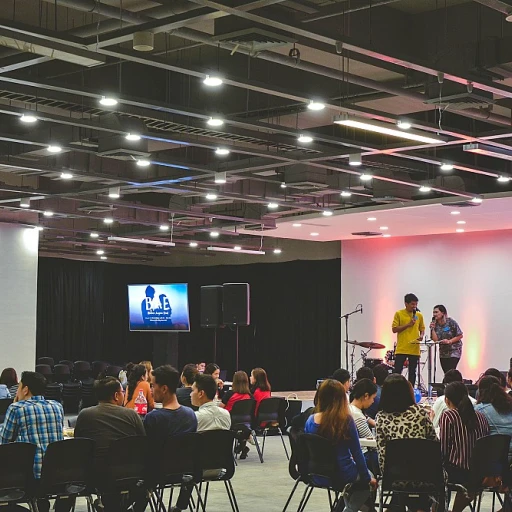
Understanding the Talent Management Coordinator Role
Decoding the responsibilities of a Talent Management Coordinator
The world of talent management, particularly for creators and influencers, is intriguing yet complex. Within this fast-paced industry, a Talent Management Coordinator plays a pivotal role, representing a nexus between talent, influencer, and brand management teams. Their responsibilities are multifaceted, extending beyond mere administrative tasks. These coordinators find themselves at the heart of social media strategies, digital campaigns, and brand partnerships, contributing significantly to the success of the talent they manage. For those considering a dive into the industry, particularly in bustling hubs like Los Angeles or New York City, it is crucial to understand that this role demands a blend of analytical prowess and creativity. The ability to work effectively with digital talent and influencer talent is central to the job. A talent manager must possess a genuine interest willingness to adapt, navigate industry dynamics, and collaborate with both in-house teams and external partners, such as a talent agency or management agency.Collaboration both on-stage and behind-the-scenes
Part of the intrigues surrounding a Talent Management Coordinator role lies in its dual nature—as a performer both on-stage and behind-the-scenes. In influencer marketing, these coordinators are instrumental in shaping digital narratives that align with a brand’s vision. They not only assist in creating brand partnerships but also ensure that the needs of the talent are adequately met. Strong communication skills are paramount, as they liaise with various stakeholders including brands, media outlets, and other talent managers. Their work has a direct impact on how talent is perceived by both followers and the industry at large. Navigating these responsibilities requires well-rounded skills, as effective management depends on striking a balance between the personal and professional interests of talents. The evolution of talent management as detailed in related insights on crafting effective interview questions for candidates sheds light on essential qualities needed in candidates to thrive in such roles. Learn more about crafting effective interview questions to identify the right fit for your talent management team.The Intersection of Human Resources Analytics and Talent Management
The Synergy Between Talent Management and Analytics
The role of a talent management coordinator encompasses more than just facilitating day-to-day operations. In the fast-paced world of social media and digital marketing, understanding the intersection between human resources analytics and talent management is vital. Especially for creators and influencers, crafting strategic plans informed by relevant data can drive both personal and brand growth.
Data-driven decision-making has become an integral component of effective influencer marketing strategies. By leveraging insights from screening interviews to performance metrics, talent managers are now empowered to make informed decisions. Such analytics allow managers and coordinators to better understand influencer engagement, streamline brand partnerships, and enhance overall marketing effectiveness, especially in a city as competitive as Los Angeles or New York City.
Analytics Shaping the Role of a Talent Manager
It's crucial for a manager in the talent industry to interpret this data effectively. By doing so, they can develop a deeper understanding of the creators' and influencers' market. It aids in assessing potential opportunities for digital talents and strategically aligns them with the right brands.
Talent coordinators handle a myriad of tasks within a talent agency or management agency, which include overseeing collaborations between influencers, media teams, and brands. Therefore, the reliance on digital analytics helps to streamline these collaborative efforts and optimize influencer talent impact across social media platforms. Whether working within a small firm or a larger management team, the integration of analytics refines the ability to work efficiently and effectively.
Key Skills for Effective Talent Management
Essential Competencies for Success in Talent Coordination
Delving into the world of talent management requires a unique blend of skills, particularly when working with creators and influencers who have distinct needs and expectations. As a talent management coordinator, having the right competencies can make all the difference in effectively guiding both budding and established digital talent. Here are some key skills that can propel your career in this dynamic and fast-paced industry:
- Interpersonal Communication: Building relationships is at the heart of talent coordination. Being able to communicate effectively with influencers, creators, and stakeholders within media or a management agency is crucial.
- Problem-Solving Skills: With the shifting landscape of influencer marketing, professionals need the ability to swiftly address and resolve challenges that arise in brand partnerships or campaign execution.
- Analytical Mindset: Using human resources analytics can offer valuable insights into talent development and performance. Coordinators need to utilize data-driven approaches to make informed decisions.
- Organizational Skills: Managing multiple clients, campaigns, and deadlines necessitates a strong knack for organization to ensure that goals are met efficiently and effectively.
- Adaptability: The social media and digital talent world evolves continuously, requiring coordinators to adapt to new trends and technologies without hesitation.
- Brand Awareness: Understanding how to align talent with brands, as well as maintaining the influencer’s authenticity, is pivotal in creating successful campaigns that resonate with audiences.
By honing these key skills, talent coordinators can play a pivotal role in the success of both influencers and brands. Market trends indicate a growing demand for talent managers who can bridge the gap between digital talent and management goals, as highlighted in our detailed blog on recruitment marketing strategies.
Challenges in Managing Creator and Influencer Talent
Overcoming Common Obstacles in Talent Management Coordination
Managing creator and influencer talent comes with its own set of unique challenges, particularly in the fast-paced world of social media and digital marketing. The role of the talent manager or talent coordinator is crucial in navigating these complexities and ensuring that both creators and the brands they work with are aligned in their goals. Firstly, influencers and content creators often have distinctive individual brands and visions that may sometimes clash with the objectives of the brands they partner with. As a talent manager, striking a balance between maintaining the creator's authentic voice and meeting brand expectations can be a tricky business. A successful talent coordinator must have the ability to work with both parties to find a middle ground, fostering productive brand partnerships while ensuring that creators can authentically resonate with their audience. Secondly, keeping up with the rapidly evolving digital landscape is imperative. Social media platforms and influencer marketing trends are ever-changing, requiring talent managers to stay informed and adaptable. With the rise of new platforms and algorithms, coordinators must continuously update their strategies to effectively promote their talents and maximize engagement. Another challenge lies in the team dynamics within a management agency. Whether operating in a bustling city like New York or Los Angeles, talent managers need to be skilled in managing both internal teams and external relationships with creators, agencies, and brands. Coordination within these busy settings demands excellent organizational skills and the ability to mediate between various interests. Furthermore, the increasing demand for data-driven strategies in the industry means talent coordinators must leverage human resources analytics to monitor and improve performance. Understanding digital metrics and translating them into actionable insights is essential for developing effective talent management strategies. In summary, a talent management coordinator must wear multiple hats, from being a mediator between interests to keeping pace with digital advancements. By understanding these challenges and honing their skills, talent managers can drive successful collaborations between creators and brands, ultimately leading to greater success in the influencer marketing industry. They provide crucial support in a fast-paced industry, combining negotiations, brand strategy, and digital media expertise.Leveraging Data for Talent Development
Harnessing Data for Talent Enhancement
In the fast-paced world of digital talent management, data serves as a powerful ally in nurturing and advancing the careers of creators and influencers. A talent manager possesses a unique opportunity to leverage these analytics to support and propel their talents' growth. Here's how data can be effectively utilized:- Identifying Growth Opportunities: By analyzing audience engagement metrics across social media platforms, talent managers can pinpoint areas where influencers have the most impact. This insight can guide creators in enhancing their digital presence and focusing on content that resonates well with their audience.
- Evaluating Brand Partnerships: Digital analytics help managers assess the success of brand partnerships by tracking relevant performance indicators. Understanding which collaborations drive the most meaningful results offers a blueprint for future brand initiatives and helps in negotiation strategies.
- Customizing Development Plans: Data analytics enables talent coordinators to tailor development programs that are specific to each influencer's career trajectory. This personalization ensures that every creator has the resources necessary to excel in the industry, aligning closely with their goals and interests.
- Monitoring Industry Trends: Keeping abreast of industry shifts through analytics provides insight into the evolving landscape of social media and influencer marketing. Recognizing these trends allows talent managers to adapt and prepare their team for changes in audience behavior and platform algorithms.













